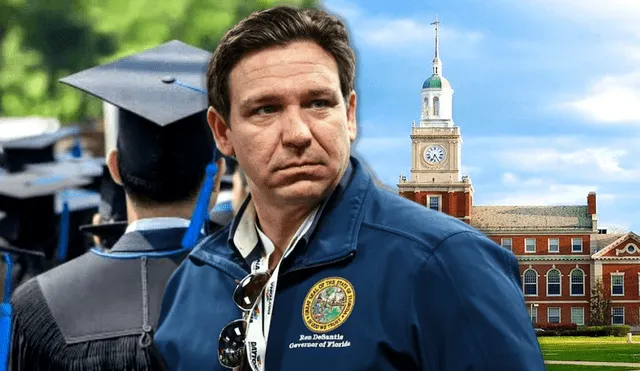New controversial Florida legislation for universities: Approved despite Governor DeSantis' opposition
The Florida House of Representatives has approved a controversial bill that aims to radically change the way university leadership is selected in the state.

In a significant move, the Florida House of Representatives has approved a bill that radically alters the way university leadership is appointed in the state. The bill, HB 1321, has sparked controversy, especially due to its direct challenge to Governor Ron DeSantis' influence over the higher education system.
Despite the governor's objections, the bill passed with overwhelming bipartisan support, stirring political tensions as it promises to bring greater transparency to the process of selecting university officials. The bill's provisions aim to dismantle several aspects of the existing system, including the secretary surrounding presidential searches.
What bill does DeSantis don't support says?
The bill, HB 1321, passed with 104 votes in favor and eight against, even though DeSantis had threatened to veto it if it made it through the legislative process.
During a public event in Pensacola, the governor argued that the law undermines the state's ability to maintain control over the universities. "It removes our ability to ensure that universities do not go off track", he stated, as quoted by Tampa Bay Times.
The bill's author, Michelle Salzman, a Republican legislator from Pensacola, denied that the bill was an attack on DeSants. She said the goal was to rebuild public trust and demonstrate the legislature's commitment to transparency. "This is not about what we have, but about showing the voters what we're doing," she emphasized.
The approved legislation dismantles several pillars of the system that governs university leadership appointments in Florida. Some of the key provisions include:
- Ending secrecy in presidential searches: The law reverses the 2022 law that allowed the names of presidential candidates to be kept secret during the selection process. Previously, only the names of finalists were made public, which led to transparency concerns.
- Reducing the governor's power: The law prevents the governor and other state officials from interfering in the search for candidates. They will not be able to speak with the members of the boards or advocate for candidates.
- Abolishing the veto power of the Board of Governors: The body, which had to confirm decisions made by the governing boards of each university, will lose its authority in the process.
- Limiting terms for board members: The law introduces term limits for members of the Board of Governors, the State Board of Education, and university governing boards.
The origin of Florida's university appointment law
The legislation received public backing from Florida House Speaker Daniel Pérez, a Republican from Miami, who, in a speech before the Board of Governors, compared the current system to a "system of patronage". This criticism came after years of political figures holding key positions in the state's universities. Some notable cases mentioned by Tampa Bay Times include:
- Adam Hasner, former leader of the House majority, was appointed president of Florida Atlantic University.
- Richard Corcoran, former Speaker of the House, became the president of New College of Florida.
- Mel Ponder, former state representative, became president of Northwest Florida State College.
- Tommy Gregory, also a former legislator, became president of State College of Florida, Manatee-Sarasota.
- Fred Hawkins, with a legislative background, became president of South Florida State College.












